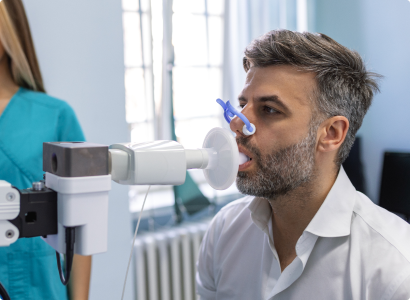A frequent yet dangerous medical condition is chronic renal disease. Maintaining kidney health for a longer period of time is simpler when damage is identified early on. Discuss any symptoms or prior illnesses with your doctor, as well as if you should get examined for renal disease.
There are five stages of kidney disease, from mild damage to complete kidney failure. Detecting kidney disease early can save lives and make treatment much easier and safer for the patient.
Why Do Kidney Diseases Occur?
Chronic kidney disease can strike any one, however some people are more prone to it than others. Those at high risk are those who furthermore possess:
- Diabetes
- Heart Conditions
- Hypertension, or elevated blood pressure
- A history of renal illness in the family
People over 60 years of age should be especially aware of the symptoms and indicators of renal disease as they have an increased risk of developing it.
What Signs of Kidney Disease Are There?
- Tiredness, lack of energy, and trouble concentrating are some of the early signs.
- Headaches when sleeping
- Skin that is itchy and dry
- Urinating frequently (or seldom)
- Puffy eyes -Bloody or frothy urine
- Swollen ankles
- Cramping in the muscles
- A decrease in appetite
- Vomiting or feeling queasy
Complete renal failure symptoms include:
- Rashes
- Fever
- Diarrhea
- Back ache
- Abdominal pain
The Importance of Chronic Kidney Disease Diagnosis
Early kidney disease detection can save lives and provide patients with less intrusive, more pleasant care. People with stage 1 renal disease can frequently reduce side effects by altering their food and way of life. To live, people with stage 5 renal failure require a kidney transplant or long-term dialysis.
Unfortunately, “only 10% of people with chronic kidney disease know that they have it,” states Dr. Joseph Vassalotti, Chief Medical Officer of the National Kidney Foundation. This is due to the fact that early symptoms are frequently disregarded or mistaken for other medical conditions.
It might be very important to schedule regular tests or discuss symptoms with your doctor in order to identify kidney disease in its early stages and take appropriate treatment.
How Is Diagnosed for Chronic Kidney Disease?
Numerous non-invasive or minimally invasive diagnostics are available to doctors for the diagnosis of renal disease.
Blood Examination:- A basic blood test is the most popular kind of test. Your doctor can check your eGFR (estimated glomerular filtration rate) by drawing a tiny amount of blood. Waste is constantly being produced by your body and entering your blood. Your kidneys’ job is to filter out garbage like this. Your eGFR indicates the amount of waste that remains in your blood and the overall health of your kidneys.
Urine Examination:- Urine is produced by your kidneys. Urine containing blood or protein is a sign that your kidneys are not functioning properly. Urine samples can be taken at home or by a medical professional.
Ultrasound:- At other occasions, a kidney examination may be necessary to determine the amount of damage and identify any blocked areas. Non-invasive ultrasounds can determine the degree of kidney injury. The ultrasound systems offered by BPL are effective and comfortable for the patient as well as the medical technician.
What is the Management of Chronic Kidney Disease?
There are strategies to maintain kidney health longer and stop the damage from growing worse, even though the majority of damage is irreversible.
- Managing diabetes patients’ diets and blood sugar levels
- Keeping blood pressure in a healthy range via diet and way of life
- Regularly engaging in 30-minute workouts
- Reducing alcohol and cigarette consumption
- Retaining a healthy weight
- Eating a diet low in fat and salt.
Chronic renal disease is characterized by progressive, long-lasting kidney impairment. End-stage renal disease, or “kidney failure,” is the term used to describe the condition when the damage is so severe that the kidneys stop functioning (ESRD). Kidney failure patients are extremely risky since they will not survive without dialysis or a transplant.
So kidney care is important.
















2 Comments
Dear sir, my brother age 46 yrs diagnosed Cronice kidney disease, creatinine 14, biopsy report is HUS, dialysis weekly two times we need your medicine and consultation for treatment please call me 7588794083
Dear sir, my brother age 46 yrs diagnosed Cronice kidney disease, creatinine 14, biopsy report is HUS, dialysis weekly two times we need your medicine and consultation for treatment please call me 7588794083